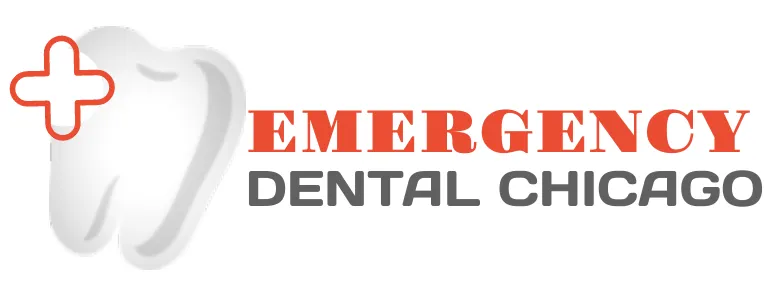Emergency Chipped Tooth Repair in Chicago
Fast, same-day repair for chipped teeth to restore function and appearance while preventing further damage—effective for all types of tooth chips.
What Severe Tooth Pain Really Means and When to See a Dentist
Not all chipped teeth are the same—some require immediate care to prevent infection, nerve damage, or further breakage. Here are the most common types of chipped tooth emergencies and what they may indicate:
Minor Chips
Small cracks or rough edges in the enamel. Not always an emergency, but should be smoothed or repaired to prevent worsening.
Moderate Chips
A noticeable piece of the tooth is broken off. Should be evaluated promptly to avoid further damage or decay.
Severe Fractures
A large portion of the tooth is missing or the damage extends deep. Requires immediate attention to prevent infection or tooth loss
Chips Involving the Nerve (Pulp Exposure)
The chip exposes the inner pulp or nerve tissue. Critical emergency—often requires a root canal or extraction
Chipped Tooth with Sharp Edges
Jagged edges that can cut the tongue or inner cheek. Should be smoothed or bonded quickly to prevent further irritation or injury
When Toothache Becomes a Medical Emergency
Not all toothaches require immediate attention—but some signal serious health risks that should never be ignored. Knowing when a toothache crosses the line into a true dental emergency can help you act fast and avoid serious complications.
Severe, unrelenting pain that doesn’t respond to painkillers
Facial swelling or swelling of the jaw, gums, or neck
Fever or chills, which may indicate a spreading infection
Pus or discharge around the tooth or gums
Difficulty swallowing or breathing, which may suggest a dangerous infection
Tooth pain after trauma or injury, especially if the tooth is loose or knocked out
Common Causes of Severe Toothache
A severe toothache is often a sign that something more serious is happening beneath the surface. Understanding the possible causes can help you recognize when it's time to seek professional dental care.
Dental Abscess
A bacterial infection at the root of a tooth or in the surrounding gums. Often causes intense, throbbing pain, swelling, fever, and sometimes pus. This is a true dental emergency.
Advanced Tooth Decay
Untreated cavities can reach the inner pulp of the tooth, exposing nerves and causing sharp or deep pain, especially when chewing or exposed to hot/cold temperatures.
Cracked or Fractured Tooth
A break in the tooth can expose sensitive inner layers, leading to sharp pain, especially when biting down or eating.
Gum Disease (Periodontitis)
Infections in the gums and supporting tissues can cause pain, inflammation, and even tooth loosening or loss if left untreated.
Impacted Wisdom Teeth
When wisdom teeth fail to erupt properly, they can press against nearby teeth or become infected, causing jaw pain, swelling, and discomfort.
Tooth Sensitivity or Enamel Erosion
While less severe, exposed dentin from worn enamel can cause sharp pain in response to temperature changes or acidic foods.
What to Do While Waiting for Dental Treatment
If you're dealing with a painful tooth and waiting for your emergency dental appointment, there are several steps you can take to manage the pain and reduce discomfort in the meantime.
Take Over-the-Counter Pain Relievers
Use ibuprofen or acetaminophen as directed to reduce pain and inflammation. Avoid aspirin if there’s any bleeding, as it may worsen it.
Apply a Cold Compress
Place a cold pack or ice wrapped in a cloth on the outside of your cheek near the painful area for 15–20 minutes every few hours.
Rinse with Warm Salt Water
Gently rinse your mouth with warm salt water to clean the area and reduce inflammation. Do this a few times a day.
Avoid Trigger Foods and Drinks
Stay away from very hot, cold, sweet, or acidic foods and beverages, which can aggravate tooth sensitivity or pain.
Keep Your Head Elevated
Lying flat can increase blood flow to the head and worsen pain. Try sleeping with your head slightly elevated.
Maintain Oral Hygiene
Continue brushing and flossing gently, being careful around the painful tooth to avoid further irritation.

Professional Pain Relief & Treatment
Our emergency dental team provides immediate, effective pain relief followed by definitive treatment to address the underlying cause of your severe toothache.
Immediate Relief
We use advanced pain management methods, including nerve blocks and prescription medications, to provide immediate relief.
Diagnosis & X-rays
Comprehensive evaluation using digital imaging and a detailed exam to pinpoint the precise cause of your severe tooth pain.
Definitive Treatment
Same-day procedures such as root canals, extractions, or other treatments to permanently resolve the source of your pain.
Don’t Wait—Seek Immediate Dental or Medical Care
If you’re experiencing any of the symptoms above, contact an emergency dentist or visit the ER immediately. Delaying care can put your health at serious risk.
Open 24 Hours • Same-day Appointments • Professional Emergency Solutions
Emergency Dental Clinics Of Chicago
Providing 24/7 immediate dental care to Chicago neighborhood.
24/7 Emergency Support
(877) 462-0628
Contact us for any of your inquiries regarding emergency dental.
© 22025 Emergency Dental Clinics Of Chicago. All rights reserved.
